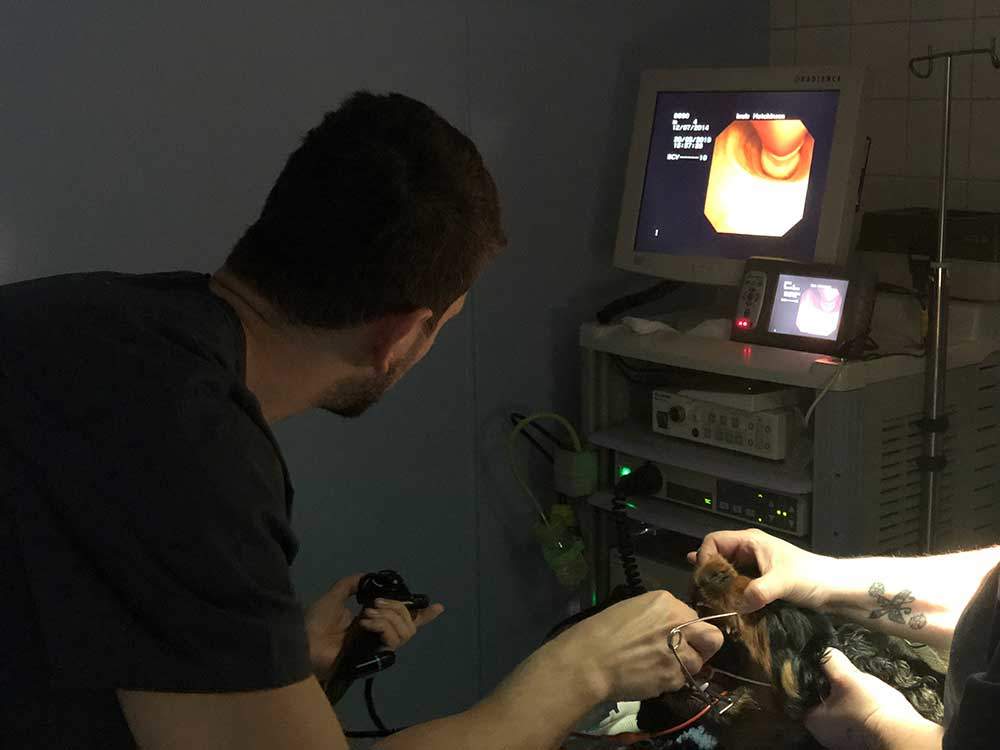
What is an endoscopy?
An endoscope is a long, thin and flexible instrument used to perform endoscopy. The endoscopic procedure is an investigative procedure to view internal structures and diagnose illness. At the end of the tube are a light and a camera so that we can record and take still images of the internal structures for medical reference and your interest. These images are viewed throughout the procedure then saved to your record. Endoscopy is less invasive than surgery and therefore highly recommended.
What can endoscopy be used for?
As well as diagnosing illness and disease, endoscopy is used to show foreign bodies, tumours and internal structures so that we can differentiate whether the structures are normal or abnormal. More sophisticated veterinarian endoscopes have fibreoptic fibres which conduct the light to the far end, which gives much better illumination. Some endoscopes also have a biopsy facility, where small samples of the skin are removed using forceps to send to external pathology services for further investigation.
Is endoscopy an option for my pet?
Our veterinary surgeons will determine whether or not an endoscopy is an option for your pet, however, some of the following symptoms are suitable for endoscopy;
- Difficulty swallowing
- Chest pain
- Persistent nausea and vomiting
- Unexplained weight loss
- Vomiting blood
- Persistent diarrhoea
- Blood in stools
- Foreign bodies
- Tumours
Once our veterinary surgeon has established endoscopy as an option, we will select the best scope for your pet. We offer endoscopy to both our regular clients and as an outpatient service.
Endoscopes at Northwest Referrals
We have a range of endoscopic equipment here at Northwest Referrals, however most commonly we use rigid and flexible scopes, depending on the body cavity of interest. Our flexible fibreoptic endoscope is suitable for gastrointestinal, oesophageal, small intestines, stomach and colon, where our rigid scope is used for investigation in the vagina, nasal cavities, bronchi amongst other cavities. Our endoscope also has a biopsy facility so that we can take a sample of the area of interest to send to our pathology specialists for further investigation.
Pros/cons of endoscopy
Pros of endoscopy
- Less surgically invasive
- Real-time imaging
- Ability to record the procedure and take still images
Cons of endoscopy
- An anaesthetic is required
- Specialist knowledge is required so can be more expensive
- Recovery from anaesthetic
Read endoscopy and thoracotomy case study here.

